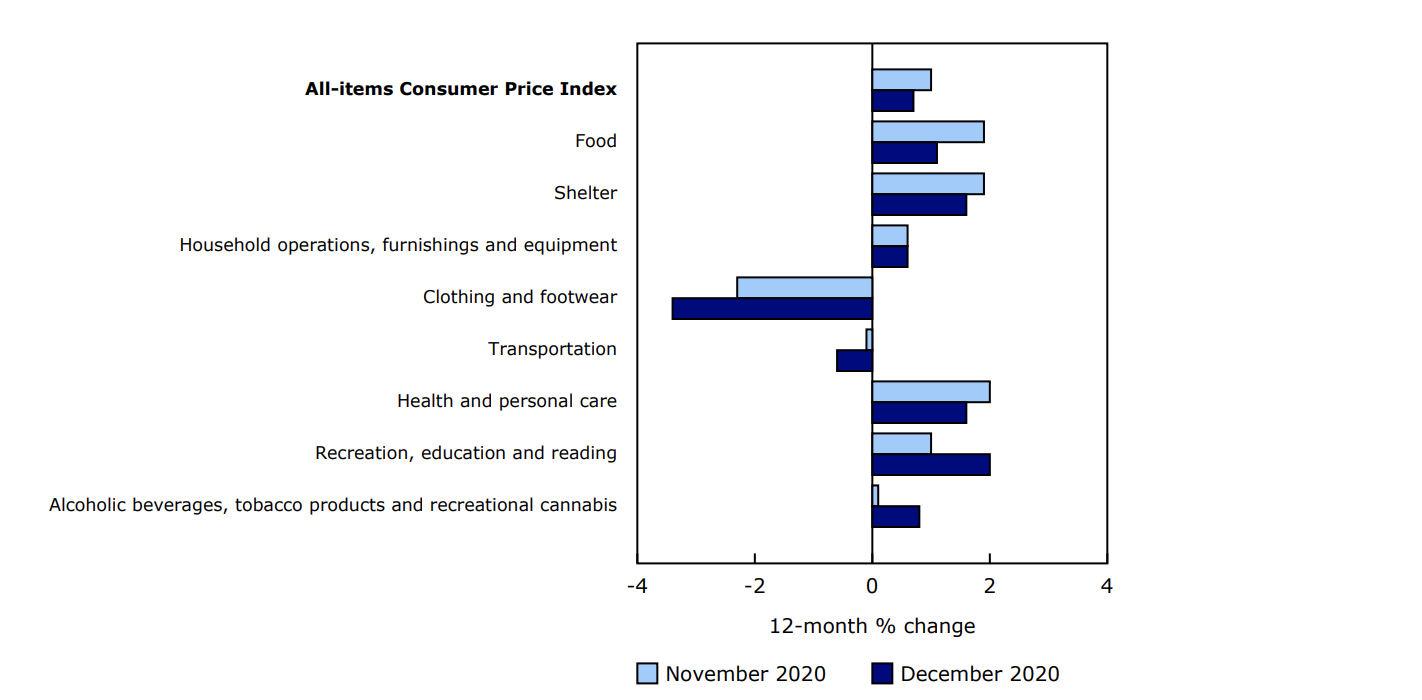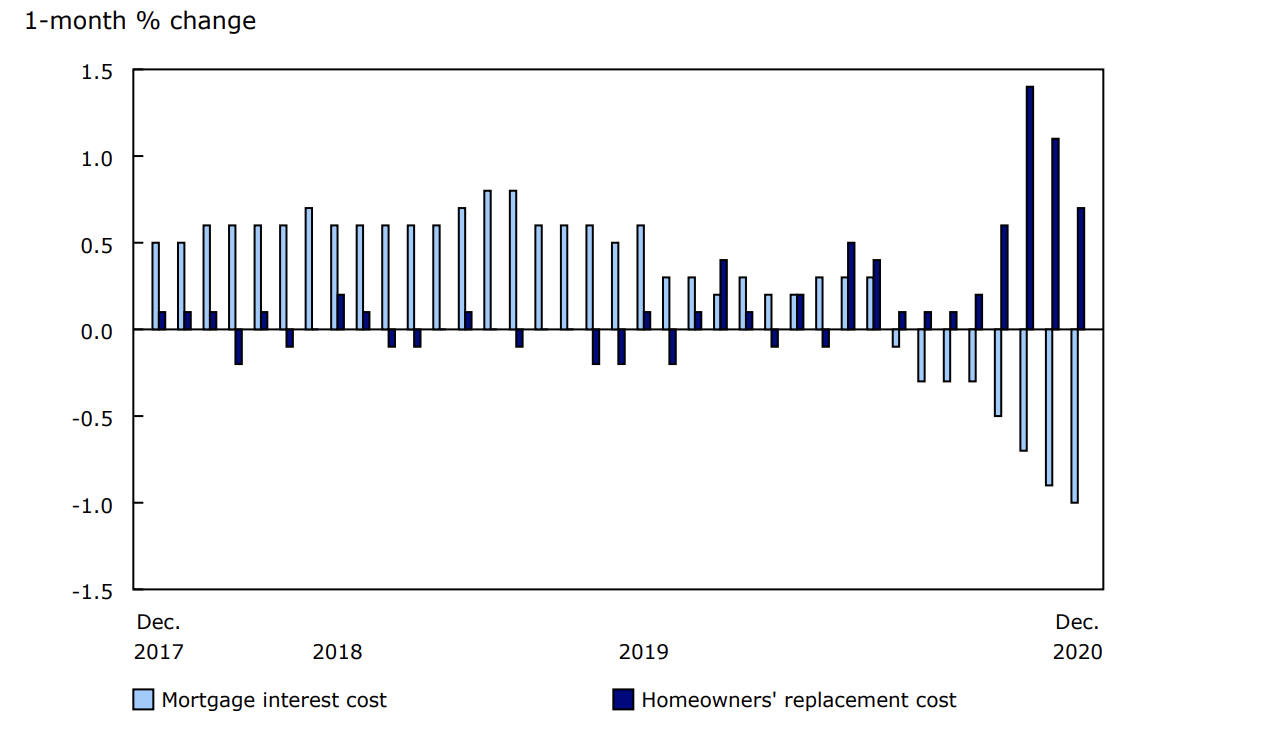The Consumer Price Index (CPI) edged up 0.7% on a year-over-year basis in December, reported Statistics Canada. Excluding the price of gasoline, the CPI increased by 1%. In December, the CPI edged up 0.1% on a seasonally adjusted monthly basis.
Gasoline Index
In December, the price of gasoline rose 3.3% – marking the first monthly rise since July 2020.
“Higher crude oil prices—driven primarily by production cuts in major oil-producing countries in response to consistently low global demand for oil amid limited travel and lower levels of economic activity—contributed to the gain. Despite the monthly increase in December, gasoline prices were 8.5% lower compared with December 2019”, stated Stats Can in its report.
Shelter Index
In December, the index for homeowners replacement cost (which is correlated to the price of new homes) increased 5.5% in the last 12-month period. In turn, this led to a 1.6% increase in the shelter index.
“Historically low interest rates coupled with a shift in buyer preferences toward larger homes continued to fuel demand for single-family homes. The increase in demand combined with higher building material costs and low inventory of homes for sale in some markets contributed to higher prices for new housing,” explained Statistics Canada.
Additionally, since this time last year, the mortgage interest cost index dropped 3.1%. “Lower interest rates following reductions to the Bank of Canada’s policy interest rate in March continued to contribute to the decline in borrowing costs as more Canadians renewed or initiated mortgages at lower rates, “ explained the agency.
Food Index
In December, the food index rose 1.1% year-over-year. Over the past 12-month period, the price of vegetables increased 1.1%, compared to the 4.6% increase seen in November. Conversely, fresh fruit prices dropped 6% on a year-over-year basis. “Favourable weather conditions in growing regions in the United States and Mexico contributed to the increased supply of fresh fruit and vegetables. Redirected supply from the food service industry also increased supply at retail outlets.” explained the agency in its report.
Statistics Canada released a statement regarding the effects COVID-19 pandemic on the CPI.
“Statistics Canada continues to monitor the impacts of the novel coronavirus (also known as COVID-19) on Canada’s Consumer Price Index (CPI). Goods and services in the Consumer Price Index (CPI) that were not available to consumers in December because of COVID-19 restrictions received special treatments, effectively removing their impact on the monthly CPI. The following subindexes were imputed from the monthly change in the All-items index: travel tours, components of spectator entertainment, recreational services, and some components of use of recreational facilities and services in some areas. Because of new restrictions put in place, the price indexes for beer served in licensed establishments, wine served in licensed establishments and liquor served in licensed establishments were imputed in Quebec, using the indexes to which consumers likely redirected their expenditures—beer purchased from stores, wine purchased from stores and liquor purchased from stores. Consistent with previous months affected by the COVID-19 pandemic, prices for suspended flights were excluded from the December CPI calculation because passengers were ultimately unable to consume them. As a result, select subcomponents of the air transportation index were imputed from the parent index (air transportation).”
Source cited: https://www150.statcan.gc.ca/n1/daily-quotidien/210120/dq210120a-eng.htm




